by Alessandra Ressa
Photo Credits Fondazione Benefica Kathleen Foreman Casali and Archivio di Stato, Trieste, fondo Stock Spa
Beautiful, elegant, witty and kind-hearted, Kathleen Foreman Casali was the nearest thing to an English queen who ever lived in the town of Trieste. Kathleen and her beloved husband Alberto Casali were among the wealthiest and most influencial families in town. Today, their legacy includes two charitable foundations, which support the poor as well as scientific research and culture. A square in Trieste is dedicated to this iconic couple, whose passionate love story and generosity never cease to amaze.
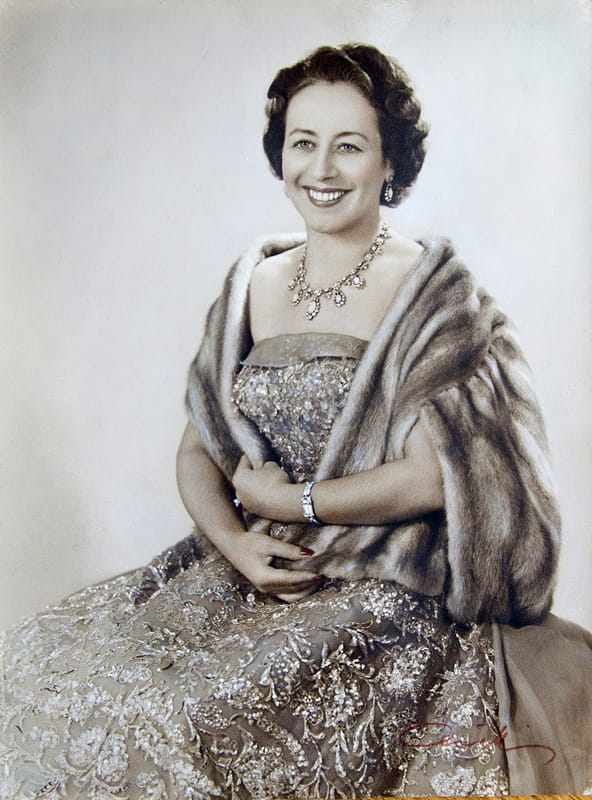
Originally from Royal Tunbridge Wells, Kent, Kathleen Foreman was born in 1906 into a wealthy family. She moved to London as a young girl where she later met a handsome Jewish man from Trieste, Alberto Casali.
Alberto Casali’s original family name was Kreilsheim, and probably of Dalmatian origin. As was customary for many Jewish families at the time, the family name was changed in 1931 to the more Italian-sounding “Casali.” Young Alberto had left Trieste in 1938, soon after fascist dictator Mussolini announced an infamous set of racial laws in Piazza Unità. He believed, and with good reason, that Italy was too dangerous for Jews. As he had some contacts in London, he moved there and he began working for BBC Radio London, who had the crucial war-time role of sending special messages drafted by the Allied High Command to Italian resistance groups.
During WW2, Albertos’s was one of the voices of Radio London. He broadcast daily bulletins, which were secretly listened to by hundreds of Italian partisans and Jews in hiding. It was probably at the radio station that he met Kathleen. What we know for sure is that it was love at first sight. Her sincere smile, energy, and positive attitude to life enchanted the young man to the point that it wasn’t long before they decided to marry.
The couple married informally in London, he a Jew, she a Protestant, at a time when the conflict with Germany was raging and bomb upon bomb fell on the city. Their wedding was nothing fancy. It was held in the town hall offices, with no layer cake, no sophisticated clothes; just a few friends, and anti-aircraft sirens in the background. The sobriety of it all only enhanced the sincere sentiment that was to tie the fabulous couple together for life. Due to his Italian citizenship, Casali was shortly interned after the wedding on the Isle of Man.
While broadcasting for BBC London, Alberto was also able to work for a local company that produced spirits, which were in great demand due to chronic shortages. This was an activity he was very familiar with as his family had been shareholders of Stock liquors for years.
Stock liquors, owned by Lionello Stock, was an important spirits producer in Italy, a pioneering and successful business in Trieste. Its factories in Barcola and later Roiano dominated the European and world markets and employed hundreds of Triestini.
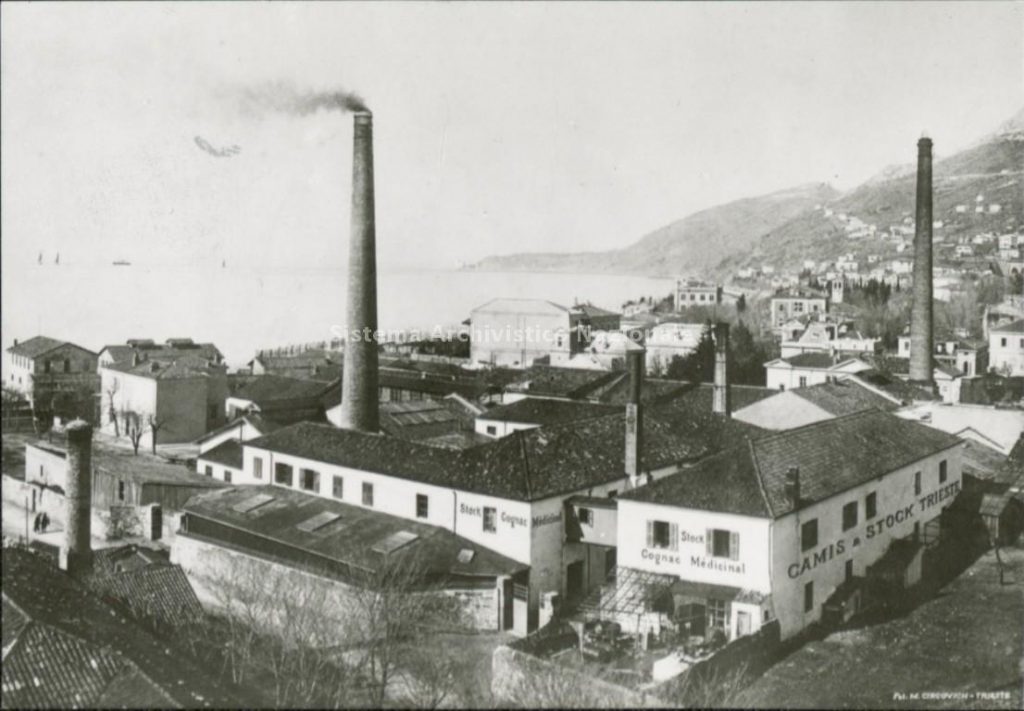
At the end of the WW1, Stock Italia was well-known in Trieste, and establishing its presence in neighboring countries and beyond. WW2 and its aftermath had a devestating effect on the business, with some key factories destroyed and others in Eastern Europe nationalized. Lionello Stock died in 1948, and a new company emerged.
In charge of the new Stock business was Alberto Casali, who had returned to Trieste with his wife in 1945. This was a time of economic reconstruction and possibilities for competent entrepreneurs, and, together with his brother-in-law Carlo Wagner, Alberto revived the company. The business flourished once again and sales skyrocketed worldwide.
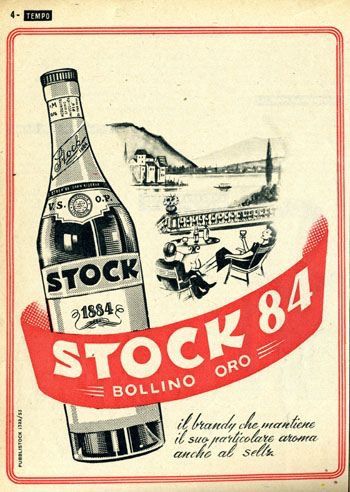
Thanks to Alberto, the Stock revival was built around brandy. In the 1950s and 60s, the company re-established its reputation as a world-class manufacturer, with products distributed in 125 countries. The company then produced other spirits, including vodka, whisky, grappa, bitters, gin, and sweet liqueurs.
In the 25 years Alberto ran the company, he had some of Stock’s famous advertising posters commisioned by artists like Guttuso, de Chirico, Guidi, and Fini, which can be viewed on request at the headquarters of Cassa di Risparmio di Trieste. Stock permanently closed its offices in Trieste in the late 1990s. The Roiano factory, with its red bricks, has been converted into medical offices and commercial businesses.

As a successful businessman, Alberto Casali was given the prestigious title of Cavaliere del Lavoro. The Cavalieri del Lavoro are business men and women decorated with the Ordine al “Merito del Lavoro” (Order of Merit for Labour) by the President of the Italian Republic. The title is in recognition for results obtained in the world of business, the creation of development and jobs, but above all for a commitment to ethical and social responsibility and improving living and working conditions in Italy.
Alberto Casali was also the Honorary British Consul of Trieste for many years. For his precious contribution he was appointed Commander of the Most Excellent Order of the British Empire by order of the Queen. In addition, he was the president of the Association of Industrialists, whose offices are in Piazza Alberto e Kathleen Casali, at the foot of Via Commerciale.
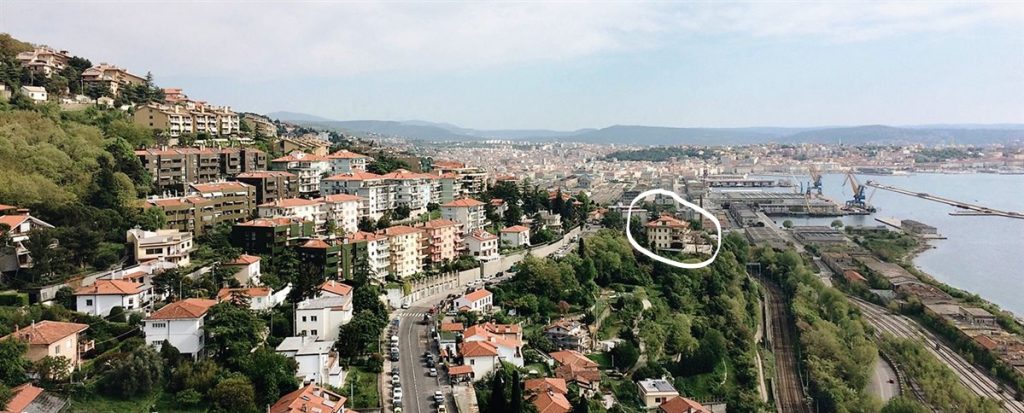
Around 1965, Alberto and Kathleen moved into a newly built mansion overlooking the sea in Strada del Friuli 72, near the Victory Lighthouse. Known as Villa Stock, it was a modern, huge luxury villa with a grand terrace where, as Kathleen often remarked, “you feel like you are literally suspended on water.” The couple entertained Triestine high society there on a weekly basis. Although the food at their parties was prevalently Italian, she missed traditional British puddings, which she often served to her Triestini friends.
Kitty, as Kathleen was affectionately called by her friends, was famous for her fabulous jewels and stylish evening gowns, which were all hand-tailored by Trieste’s finest dressmakers. She spoke perfect Triestine with a thick British accent.
Alberto and Kathleen didn’t have any children. Perhaps for this reason, Alberto generously decided to share his fortune with the less fortunate, and, in 1966, created the Fondazione Benefica Alberto e Kathleen Casali, a charity foundation dedicated to the poor and needy in Trieste.
Kathleen was devastated when Alberto died in 1972, frequently mentioning how much she missed him and his dry, witty “British-Triestino” humor. In the decades that followed, the “first lady” of Trieste became very involved in the town’s social problems, and a tireless promoter of culture and education. When she died in 2000, a second charity foundation was established, the Fondazione Benefica Kathleen Foreman Casali, which supports culture, scientific research, and awards financial support to students in economic hardship. More than ever, the legacy of Kathleen Foreman and Alberto Casali is a key part of Trieste, offering fundamental support to its people.
The above information has been kindly provided by Fondazione Benefica Kathleen Foreman Casali.

























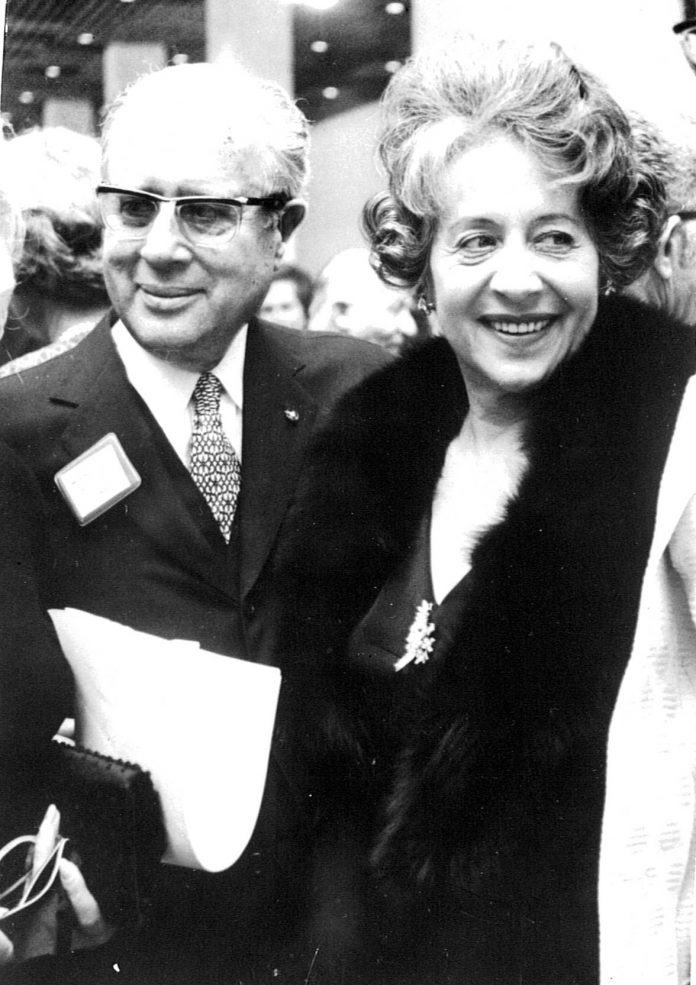




What a lovely story and written so well. Of Jewelry heritage myself, I am always interested in the tales of the local people and especially ones with a Jewish family history.
This couple must have been very special and the Triestini benefit even today. I enjoyed reading this ❤️